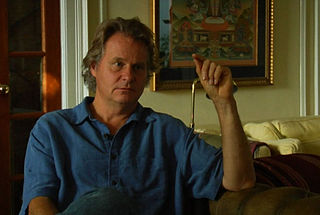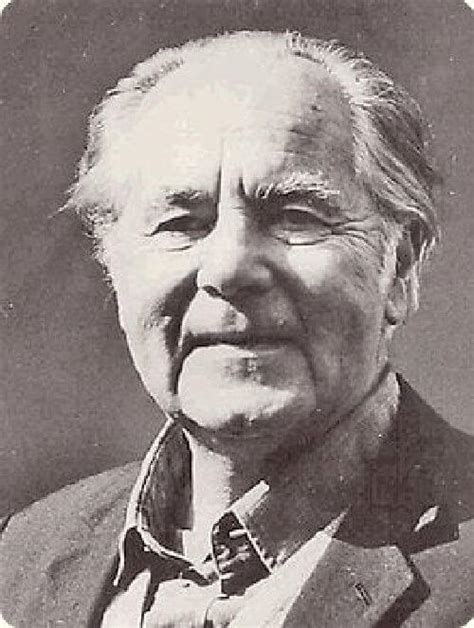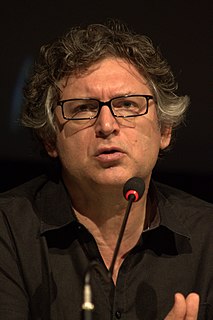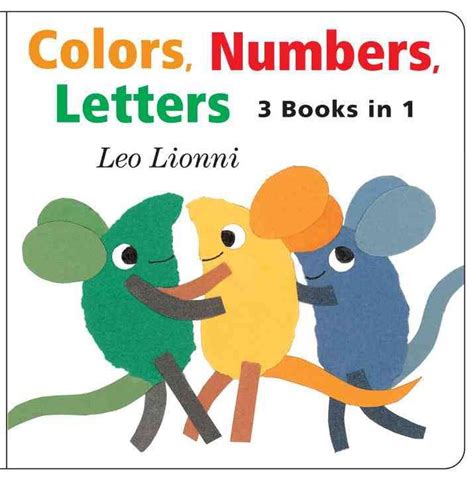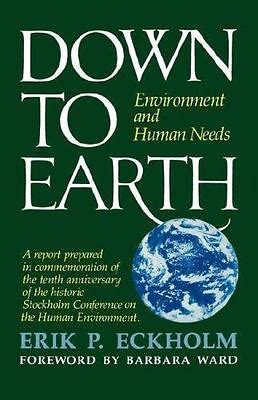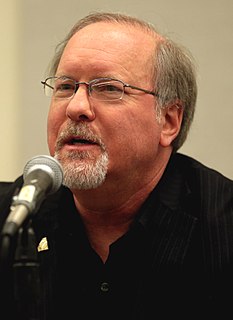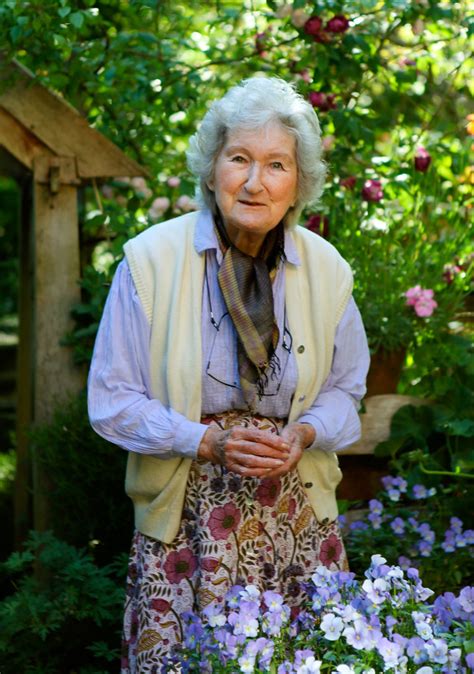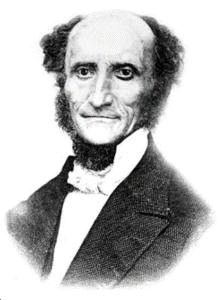Top 1200 Plants Quotes & Sayings - Page 20
Explore popular Plants quotes.
Last updated on December 22, 2024.
Water, water, water....There is no shortage of water in the desert but exactly the right amount , a perfect ratio of water to rock, water to sand, insuring that wide free open, generous spacing among plants and animals, homes and towns and cities, which makes the arid West so different from any other part of the nation. There is no lack of water here unless you try to establish a city where no city should be.
All things are flowing, even those that seem immovable. The adamant is always passing into smoke. The plants imbibe the materialswhich they want from the air and the ground. They burn, that is, exhale and decompose their own bodies into the air and earth again. The animal burns, or undergoes the like perpetual consumption. The earth burns, the mountains burn and decompose, slower, but incessantly.
The chemical differences among various species and genera of animals and plants are certainly as significant for the history of their origins as the differences in form. If we could define clearly the differences in molecular constitution and functions of different kinds of organisms, there would be possible a more illuminating and deeper understanding of question of the evolutionary reactions of organisms than could ever be expected from morphological considerations.
Do you know how the naturalist learns all the secrets of the forest, of plants, of birds, of beasts, of reptiles, of fishes, of the rivers and the sea? When he goes into the woods the birds fly before him and he finds none; when he goes to the river bank, the fish and the reptile swim away and leave him alone. His secret is patience; he sits down, and sits still; he is a statue; he is a log.
I think when you're governing, it will become increasingly apparent that if you were to just eliminate trade deals with Mexico, for example, well, you've got a global supply chain. The parts that are allowing auto plants that were about to shut down to now employ double shifts is because they're bringing in some of those parts to assemble out of Mexico. And so it's not as simple as it might have seemed.
But if you do know what is taught by plants and weather, you are in on the gossip and can feel truly at home. The sum of a field's forces [become] what we call very loosely the 'spirit of the place.' To know the spirit of a place is to realize that you are a part of a part and that the whole is made or parts, each of which in a whole. You start with the part you are whole in.
Ambas and Bobia Islands are perfect gems of beauty. Mondoleh I cannot say I admire. It always looks to me exactly like one of those flower-stands full of ferns and plants - the sort you come across in drawing rooms at home, with wire-work legs. I do not mean that Mondoleh has wire-work legs under water, but it looks as if it might have.
It was the month of May, the month when the foliage of herbs and trees is most freshly green, when buds ripened and blossoms appear in their fragrance and loveliness. And the month when lovers, subject to the same force which reawakens the plants, feel their hearts open again, recall past trysts and past vows, and moments of tenderness, and yearn for a renewal of the magical awareness which is love.
Living through the 1929 Great Depression helped shape my social conscience. During this time, I realized the earth was still the same place, manufacturing plants were still intact, and resources were still there, but people didn’t have money to buy the products. I felt the rules of the game we play by were outmoded and damaging. This began a life-long quest resulting in the conclusions and designs presented in The Venus Project.
There are about 250,000 different species of fossil plants and animals known . . In spite of this large quantity of information, it is but a tiny fraction of the diversity that [according to the theory] actually lived in the past. There are well over a million species living today and . . [it is] possible to predict how many species ought to be in our fossil record. That number is at least 100 times the number we have found.
My favorite quote: The land ethic simply enlarges the boundaries of the community to include soils, waters, plants, and animals, or collectively: the land. In short, a land ethic changes the role of Homo sapiens from conqueror of the land-community to plain member and citizen of it. It implies respect for his fellow-members, and also respect for the community as such.
If diversity is a source of wonder, its opposite - the ubiquitous condensation to some blandly amorphous and singularly generic modern culture that takes for granted an impoverished environment - is a source of dismay. There is, indeed, a fire burning over the earth, taking with it plants and animals, cultures, languages, ancient skills and visionary wisdom. Quelling this flame, and re-inventing the poetry of diversity is perhaps the most important challenge of our times.
She took kisses like so many coats of paint […] how long and how vainly I searched for excuses which might make her amorality if not palatable at lest understandable. I realize now the time I wasted in this way; instead of enjoying her and turning aside from these preoccupations with the thought, ‘She is untrustworthy as she is beautiful. She takes love as plants do water, lightly, thoughtlessly.
Suppose we were (as we might be) an influence, an idea, a thing intangible, invulnerable, without front or back, drifting about like a gas? Armies were like plants, immobile, firm-rooted, nourished through long stems to the head. We might be a vapour, blowing where we listed Ours should be a war of detachment. We were to contain the enemy by the silent threat of a vast, unknown desert
We declare that only man exists. This is not to say that material, inorganic nature and nonhuman beings-animals and plants-are in any sense unreal, insubstantial, or illusory because they do not so exist. We merely state that the reality of these nonhuman realms differs from that of human existence, whose primary characteristic is Da-sein (literally being-the-there)... Man as man is present... in a manner wholly different from... inanimate things.
Nature is not our enemy, to be raped and conquered. Nature
is ourselves, to be cherished and explored. Shamanism has always known this,
and shamanism has always, in its most authentic expressions, taught that the
path required allies. These allies are the hallucinogenic plants and the
mysterious teaching entities, luminous and transcendental, that reside in that
nearby dimension of ecstatic beauty and understanding that we have denied until
it is now nearly too late.
Thousands of years ago, man lived in harmony with the rest of the natural world. Through what we would today call Telepathy, he communicated with animals, plants, and other forms of life-none of which he considered "beneath" himself, only different, with different jobs to perform. He worked side by side with earth angels and nature spirits, with whom he shared responsibility for taking care of the world.
This song of the waters is audible to every ear, but there is other music in these hills, by no means audible to all. On a still night, when the campfire is low and the Pleiades have climbed over rimrocks, sit quietly and listen, and think hard of everything you have seen and tried to understand. Then you may hear it - a vast pulsing harmony - its score inscribed on a thousand hills, its notes the lives and deaths of plants and animals, its rhythms spanning the seconds and the centuries.
Of all the everyday plants of the earth, grass is the least pretentious and the most important to mankind. It clothes the earth is an unmistakable way. Directly or indirectly it provides the bulk of man's food, his meat, his bread, every scrap of his cereal diet. Without grass we would all starve, we and all our animals. And what a dismal place this world would be!
You will be astonished when I tell you what this curious play of carbon amounts to. A candle will burn some four, five, six, or seven hours. What, then, must be the daily amount of carbon going up into the air in the way of carbonic acid! ... Then what becomes of it? Wonderful is it to find that the change produced by respiration ... is the very life and support of plants and vegetables that grow upon the surface of the earth.
The groves and thickets of smaller trees are full of blooming evergreen vines. These vines are not arranged in separate groups, or in delicate wreaths, but in bossy walls and heavy, mound-like heaps and banks. Am made to feel that I am now in a strange land. I know hardly any of the plants, but few of the birds, and I am unable to see the country for the solemn, dark, mysterious cypress woods which cover everything.
The cause of the six-sided shape of a snowflake is none other than that of the ordered shapes of plants and of numerical constants; and since in them nothing occurs without supreme reason-not, to be sure, such as discursive reasoning discovers, but such as existed from the first in the Creators's design and is preserved from that origin to this day in the wonderful nature of animal faculties, I do not believe that even in a snowflake this ordered pattern exists at random.
And I thanked mi papa who'd always said to me that we, los Indios, the Indians, were like the weeds. That roses you had to water and giver fertilizer or they'd die. But weeds, indigenous plants, you gave them nada-nothing; hell you even poisoned them and put concrete over them, and those weeds would still break the concrete.
Men are born to write. The gardener saves every slip, and seed, and peach-stone: his vocation is to be a planter of plants. Not less does the writer attend his affair. Whatever he beholds or experiences, comes to him as a model, and sits for its picture. He counts it all nonsense that they say, that some things are undescribable. He believes that all that can be thought can be written, first or last; and he would report the Holy Ghost, or attempt it.
I feel very strongly, we've got to give animals a good life. I've worked really hard improving slaughter plants and animal handling and transport. And people have said to me, why don't you work on improving conditions on pig farms? And basically, to be effective on making real change out there on the ground, you can only work on so many things. You know, you get too distributed, you're not effective.
Women who are with child should be careful of themselves; they should take exercise and have a nourishing diet. The first of these prescriptions the legislator will easily carry into effect by requiring that they should take a walk daily to some temple, where they can worship the gods who preside over birth. Their minds, however, unlike their bodies, they ought to keep quiet, for the offspring derive their natures from their mothers as plants do from earth.
In the early 1700's, two physicians...learned about pinkroot's efficacy from the Indians. The word soon spread to the general public, who praised this worm treatment, particularly against roundworms, for the next 200 years. Pinkroot fell into disuse in the early 1900's, simply because greedy herb dealers adulterated or even substituted shipments of true pinkroot with quantities of other plants.
The widespread abuse of prisoners is a virtually foolproof indication that politicians are trying to impose a system--whether political, religious or economic--that is rejected by large numbers of the people they are ruling. Just as ecologists define ecosystems by the presence of certain "indicator species" of plants and birds, torture is an indicator species of a regime that is engaged in a deeply anti-democratic project, even if that regime happens to have come to power through elections.
The Environmental Protection Agency's first-ever limits on carbon pollution from power plants will create clean- energy jobs, improve public health, bring greater reliability to our electric power grid, bolster our national security, demonstrate the United States' resolve to combat climate change and maybe even reduce our utility bills.
The interpretations of science do not give us this intimate sense of objects as the interpretations of poetry give it; they appeal to a limited faculty, and not to the whole man. It is not Linnaeus or Cavendish or Cuvier who gives us the true sense of animals, or water, or plants, who seizes their secret for us, who makes us participate in their life; it is Shakspeare [sic] … Wordsworth … Keats … Chateaubriand … Senancour.
The pleasure of eating should be an extensive pleasure, not that of the mere gourmet. People who know the garden in which their vegetables have grown and know that the garden is healthy will remember the beauty of the growing plants, perhaps in the dewy first light of morning when gardens are at their best. Such a memory involves itself with the food and is one of the pleasures of eating. (pg. 326, The Pleasures of Eating)
The growth of all the plants of the garden from seeds and roots keep us mindful, in accordance with of the Parable of the Sower, of the need for our loving, mortified reception and cultivation in our hearts and souls of the seeds and roots of the supernatural gifts and virtues necessary for progress in the ascetical/mystical ascent of our souls toward union with God and with the divine will for Creation and Kingdom
Nuclear power as a solution to global warming is theoretically possible, but the proliferation problems and accident risks it would create would, I think, be intolerable because you have to build an immense number of nuclear power plants, one large plant a week around the world for the next 40 years, to make a significant dent in the global warming problem.
For corporations to be bedfellows with the arts is good business for both. The architecture that houses a company is a more visible statement than the president's in the annual report. Ditto interiors, particularly of offices and sometimes, dramatically, in plants. For solvent businesses, support of community cultural undertakings in music, drama, dance creates great goodwill. Also, the existence of such activities is often important to the executives and their families that companies want to keep or attract to keep.
People are the common denominator of progress. So no improvement is possible with unimproved people, and advance is certain when people are liberated and educated. It would be wrong to dismiss the importance of roads, railroads, power plants, mills,and the other familiar furniture of economic development. But we are coming to realize that there is a certain sterility in economic monuments that stand alone in a sea of illiteracy. Conquest of illiteracy comes first.
Joy is the great note all through the Bible. We have the notion of joy that arises from good spirits or good health, but the miracle of joy of God has nothing to do with a man's life or his circumstances or the condition he is in. Jesus Christ does not come to a man and say, 'Cheer up.' He plants within a man the miracle of the joy of God's own nature.
The real bosses in the capitalist system of market economy are the consumers. They by their buying and by their abstention from buying decide who should own the capital and run the plants. They determine what should be produced and in what quantity and quality. Their attitudes result either in profit or in loss for the enterpriser. They make poor men rich and rich men poor. They are no easy bosses.
In his eyes shone the reflection of the most beautiful planet in the Universe---a planet that is not too hot and not too cold; that has liquid water on the surface and where the gravity is just right for human beings and the atmosphere is perfect for them to breathe; where there are mountains and deserts and oceans and islands and forests and trees and birds and plants and animals and insects and people---lots and lots of people. Where there is life. Some of it, possibly, intelligent.
In our everyday garden grow the rosemary, juniper, ferns and plane trees, perfectly tangible and visible. For these plants that have an illusory relationship with us, which in no way alters their existentiality, we are merely an event, an accident, and our presence, which seems so solid, laden with gravity, is to them no more than a momentary void in motion through the air. Reality is a quality that belongs to them, and we can exercise no rights over it.
The minds of stone lovers had colonised stones as lichens clung to them with golden or grey-green florid stains. The human world of stones is caught in organic metaphors like flies in amber. Words came from flesh and hair and plants. Reniform, mammilated, botryoidal, dendrite, haematite. Carnelian is from carnal, from flesh. Serpentine and lizardite are stone reptiles ; phyllite is leafy-green.
There has come a time when we can no longer remain silent but must speak up for our country which is being sold, abused, mined, depleted, drained, overworked, over-loved, its plants and animals becoming endangered and exterminated faster than we can renew them. Our country is silent, so we must speak and act to save it.
One animal or plant species may become extinct every hour. All species are doomed to extinction, but man through worldwide development/killing animals for food/profit/using toxic chemicals such as pesticides/industrial wastes, will accelerate the extinction of plants/animals and the result will be a more hostile environment for man.
When tending a vast and beautiful garden, you have to plant many seeds, never knowing ahead of time which ones will germinate, which will produce the most glorious flowers, which will bear the sweetest fruit. A good gardener plants them all, tends and nurtures them, and wishes them well. Optimism is the best fertilizer.
Perhaps there is no other way of reaching some understanding of being than through art? Writers themselves don't analyze what they do; to analyze would be to look down while crossing a canyon on a tightrope. To say this is not to mystify the process of writing but to make an image out of the intense inner concentration the writer must have to cross the chasms of the aleatory and make them the word's own, as an explorer plants a flag.
I believe that the place where an animal dies is a sacred one. There is a need to bring ritual into the conventional slaughter plants and use as a means to shape people's behavior. It would help prevent people from becoming numbed, callous, or cruel. The ritual could be something very simple, such as a moment of silence. In addition to developing better designs and making equipment to insure the humane treatments of all animals, that would be my contribution.
Many people I've met believe that plants are made up of soil-that the tree outside your house, for example, is mostly made from the soil in which it grew. That's a common mistake. That tree is mostly made up of one of the gases in our air (carbon dioxide) and water (hydrogen and oxygen). Trees are solidified air and sunlight.
If you take any flower you please and look it over and turn it about and smell it and feel it and try to find out all its little secrets, not of flower only but of leaf, bud and stem as well, you will discover many wonderful things. This is how you make friends with plants, and very good friends you will find them to the end of our lives.
Crouchers move through a garden at a stoop: naming, gasping, horraying, admiring or coveting plants; Gapers saunter, smiling or sighing at what they find, succumbing to an intangible beatitude that takes them for a brief escape into another dimension. Both sorts of gardener are besotted; both get their hands dirty; think and talk gardening; but on the threshold of another's garden, each use a different set of whiskers.
When we mistake what we can know for all there is to know, a healthy appreciation of one's ignorance in the face of a mystery like soil fertility gives way to the hubris that we can treat nature as a machine. Once that leap has been made, one input follows another, so that when the synthetic nitrogen fed to plants makes them more attractive to insects and vulnerable to disease, as we have discovered, the farmer turns to chemical pesticides to fix his broken machine.
Our blessed Savior chose the Garden for his Oratory, and dying, for the place of his Sepulchre; and we do avouch for many weighty causes, that there are none more fit to bury our dead in than in our Gardens and Groves, where our Beds may be decked with verdant and fragrant flowers, Trees and Perennial Plants, the most natural and instructive Hieroglyphics of our expected Resurrection and Immortality.
Here is my Farm Relief bill: Every time a Southerner plants nothing on his farm but cotton year after year, and the Northerner nothing but wheat or corn, why, take a hammer and hit him twice right between the eyes. You may dent your hammer, but it will do more real good than all the bills you can pass in a year.
Something is fundamentally amiss when you refer to a person as illegal. Bottom line. That's why we so easily talk about this like we're talking about plants or crops. These illegals. My God, man, it's so tragic to me traveling around this country, this country that is getting more and more Latino, and you hear people use the words "illegal" and "Mexican" interchangeably. Interchangeably. Without blinking an eye.
Gertrude Jekyll, like Monet, was a painter with poor eyesight, and their gardens - his at Giverny in the Seine valley, hers in Surrey - had resemblance's that may have sprung from this condition. Both loved plants that foamed and frothed over walls and pergolas, spread in tides beneath trees; both saw flowers in islands of colored light - an image the normal eye captures only by squinting.
Karl Rove thinks we shouldn’t have Hillary Clinton in the White House because she fell and hit her head a couple years ago, spent three days in the hospital, and maybe she has brain damage. You know, I don’t recall the Republicans being this concerned with mental fitness during the years when Reagan was talking to house plants in the White House.
The Gospel does not require anything good that man must furnish: not a good heart, not a good disposition, no improvement of his condition, no godliness, no love either of God or men…….. It plants love into his heart and makes him capable of all good works. It demands nothing, but it gives all. Should not this fact make us leap for JOY?
VIDEO ARCHIVE- INTERVIEW 24768 . GOLD-EYE I like trees… grass… only birds in sky. People walking safe. Family No Creatures. Sleep all night safe. Walk under sun in own place. Grow plants. Build. Be father with mother. Have Children. A place like Petar told me. Home. After Change goes back… I want home.












